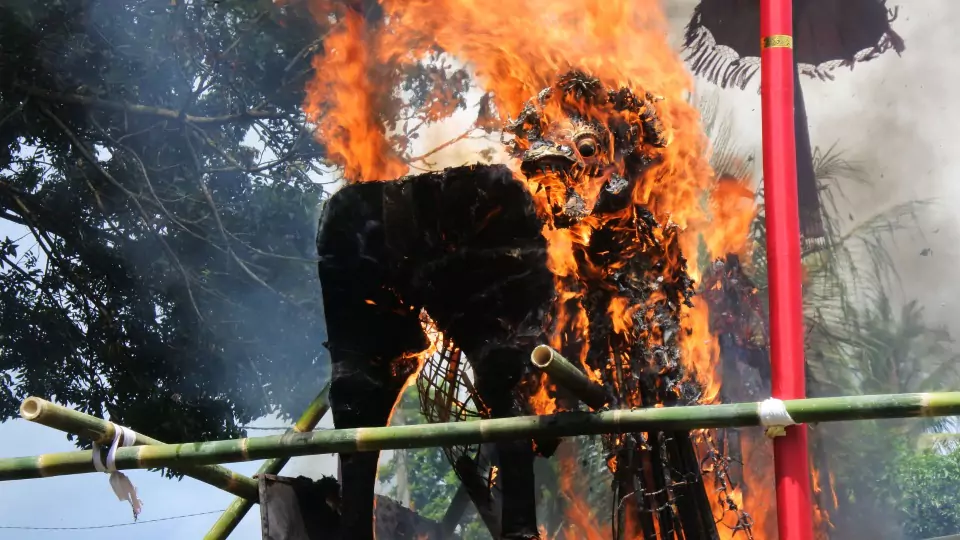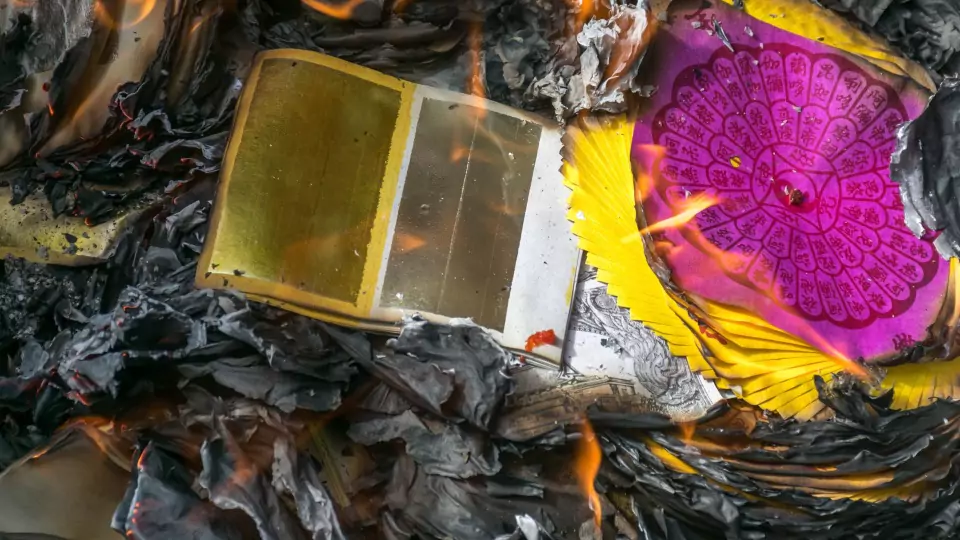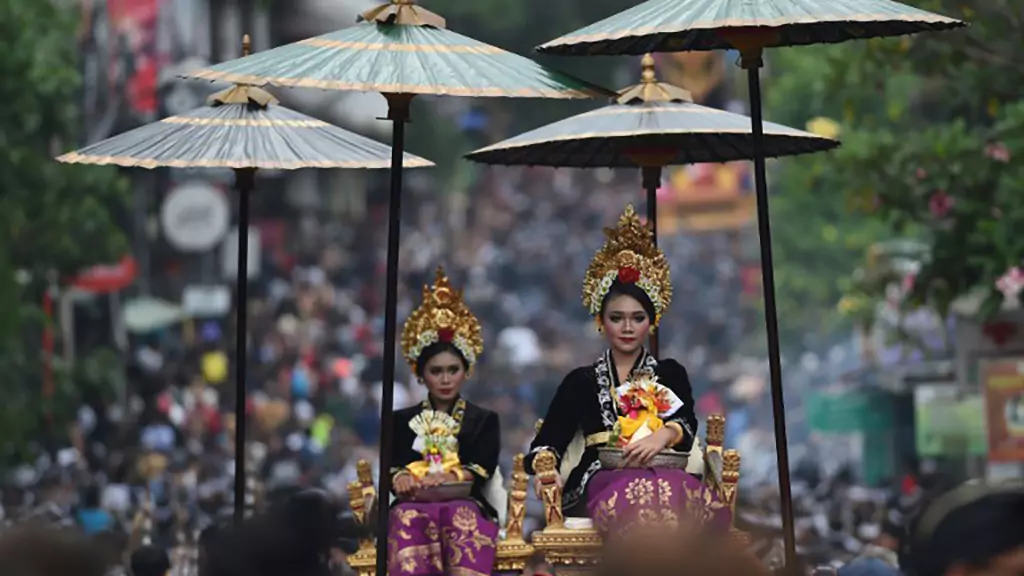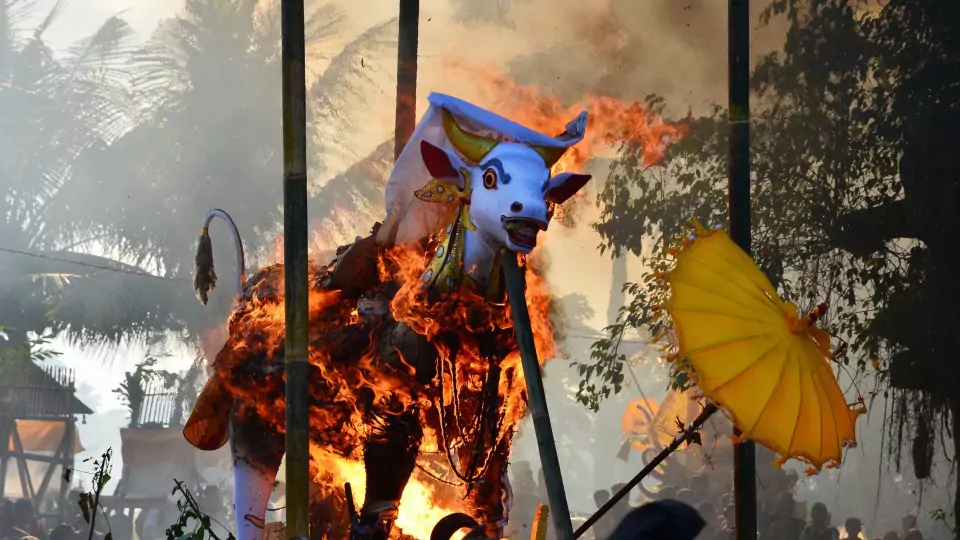Bali, an island celebrated for its stunning beaches and vibrant culture, is also home to deeply ingrained Balinese Funeral Customs. These customs are more than just a means to mourn; they’re a celebration of life, the spiritual journey of the departed, and a colourful manifestation of love and respect. Rooted in the Hindu faith, these Traditional Balinese Death Ceremonies reflect the Balinese way of embracing both life and the afterlife in a manner unique to the island. Let’s delve deeper into these fascinating traditions.
Ngaben: The Heart of Balinese Funeral Customs

Ngaben, or the Cremation Ceremony, stands at the core of Balinese Funeral Customs. Far from being somber, these rituals burst with color and music. The community unites to guide the departed soul towards peace. The ceremony involves wrapping the body in white cloth. The family provides ‘telkin’—messages to navigate the soul beyond our realm.
Arwah: The Soul’s Presence in Hindu Funeral Practices in Bali
In Hindu Funeral Practices in Bali, the soul (Arwah) is believed to linger, overseeing its own farewell. Prayers and offerings smoothen its passage. This showcases the deep spiritual bond between the living and the departed.
Telkin: Guiding the Soul in Traditional Balinese Death Ceremonies

The telkin play a critical role, acting as spiritual guides for the soul’s journey to Moksa—eternal peace. These rituals underscore the belief in life’s cyclical nature and the soul’s return to divine oneness.
Overcoming Adversity: Competition for the Soul in Balinese Cremation Rituals
Balinese Cremation Rituals acknowledge the soul’s battle against malevolent forces. The Ngaben ceremony serves as a protective rite, ensuring the soul’s safe passage to the afterlife, free from negativity’s grasp.

Neraka: Navigating the Afterlife’s Challenges
Neraka represents the obstacles the soul faces in the afterlife. Specific practices within the Ngaben ceremony aid the soul’s navigation through these challenges, emphasising compassion and communal support.
The Festive Element of Balinese Funerals
Turning mourning into celebration include magnificent processions and the use of white in mourning attire. White symbolises purity and reincarnation rather than sorrow—a testament to the Balinese perspective on death.
Royal Funerals in Bali: A Spectacle of Honor
The funerals of Balinese royalty take these customs to grand heights, exemplified by Agung Suyasa’s lavish farewell. Such events underscore the cultural richness and communal solidarity.
Conclusion

Balinese Funeral Customs offer a profound lesson on life and death’s interplay, celebrating the eternal cycle and spirit’s journey with vibrancy and reverence. They represent spirituality, community, and cultural pride, marking Bali as an island of profound spiritual depth beyond physical beauty.
As you explore Bali, remember the island’s heart beats in its ability to honour farewells as richly as greetings, encapsulated in its unique funeral traditions.
FAQ Section
Q: What is Ngaben?
A: Ngaben is the Cremation Ceremony at the heart of Balinese Funeral Customs, aiming to purify the soul for its journey to the afterlife.
Q: Why is white significant in Balinese funerals?
A: White symbolizes purity, rebirth, and a new beginning in Balinese Funeral Customs, reflecting a positive outlook on the soul’s transition.
Q: Can anyone attend a Balinese funeral?
A: While Balinese Funeral Customs are community events, respect and permission from the family are paramount for those wishing to attend.
Q: What challenges does the soul face in its journey?
A: In Traditional Balinese Death Ceremonies, the soul navigates Neraka and battles negative forces, aided by the protective rites of the Ngaben ceremony.

